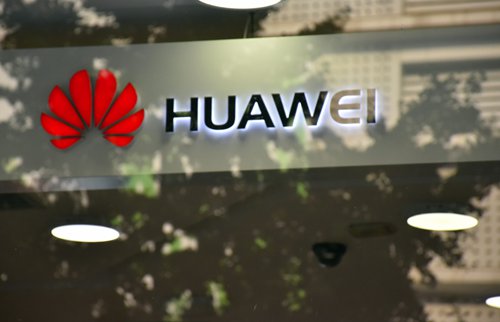HOME >> BUSINESS
Huawei heads latest ranking of China's private companies despite US crackdown
By Zhang Hongpei Source:Global Times Published: 2019/8/22 21:53:40
Technology research enhances growth momentum: analyst

Photo: IC
Chinese telecommunications giant Huawei has ranked No.1 on a list of China's 500 largest private enterprises for the fourth consecutive year, despite a crackdown on the company by the US.
In the latest ranking of the 500 largest private enterprises in China, which was unveiled at the 2019 China Top 500 Private Enterprises Summit held in Xining, capital of Northwest China's Qinghai Province on Thursday, Huawei was No.1 with revenues of 721.2 billion yuan ($102 billion) last year.
HNA Group was second and Suning Holdings Group was third.
Huawei overtook Lenovo for the first time in 2016 when it reported revenues of 395 billion yuan. In the past four years, Huawei's revenues have increased by around 100 billion yuan annually. According to its ranking in 2018, it generated more than 600 billion yuan in revenues.
Huawei has been the target of a crackdown by the US government, which has used its national power amid the escalating China-US trade war, experts said.
The privately held company, with leading technology in 5G networks, was added to the US Entity List in May this year.
Huawei is scheduled to launch its artificial intelligence Ascend 910 chip on Friday, a further move to realize its chip strategy. The new chipset can go head-to-head with those produced by US companies such as Qualcomm and Nvidia, analysts said.
Huawei also ranked first on another list that showed the top 500 private enterprises focused on the manufacturing sector.
The threshold for entering this year's top 500 list is much higher. Private companies must have revenues of at least 18.59 billion yuan to get on the list, up nearly 3 billion yuan from 2018.
The Thursday list included 20 private companies that are also included in the Fortune 500 Global, compared with 17 last year, according to the report.
In 2018, the top 500 companies had revenues of 28.5 trillion yuan, up 16.44 percent year-on-year, and net profits reached 1.29 trillion yuan, up 13.87 percent on a yearly basis, said Huang Rong, vice chairman of the All-China Federation of Industry and Commerce (CFIC), when delivering the report. The agency is the host of the summit.
"The top 500 companies experienced slight declines in their profitability and operational efficiency. The net profit margin declined by 0.1 percentage point and return on equity was down 1.31 percentage point, compared with the previous rates," said Huang.
"We should feel inspired. Despite external pressure from the trade war and internal downward economic pressure, Chinese private companies, especially the industry leaders, delivered a good report," Liu Dingding, a Beijing-based industry analyst, told the Global Times on Thursday.
The performance of private companies is a true barometer of China's economic development, according to Liu.
Moreover, the private sector provides more than 80 percent of China's urban employment and accounts for more than 70 percent of the nation's technological innovation, 60 percent of GDP and 50 percent of taxes, data from the CFIC showed.
The Thursday report indicates that China's economy can weather storms from the outside since it has a strong internal growth engine, said Liu, and private companies have huge potential to achieve high-quality and cutting-edge competence.
An investor in the telecoms, media and technology sectors surnamed Li told the Global Times on Thursday that the private sector is actively improving in terms of technology and innovation, an encouraging sign for the country's economic transformation.
Newspaper headline: Huawei heads ranking of China’s private firms
Posted in: COMPANIES